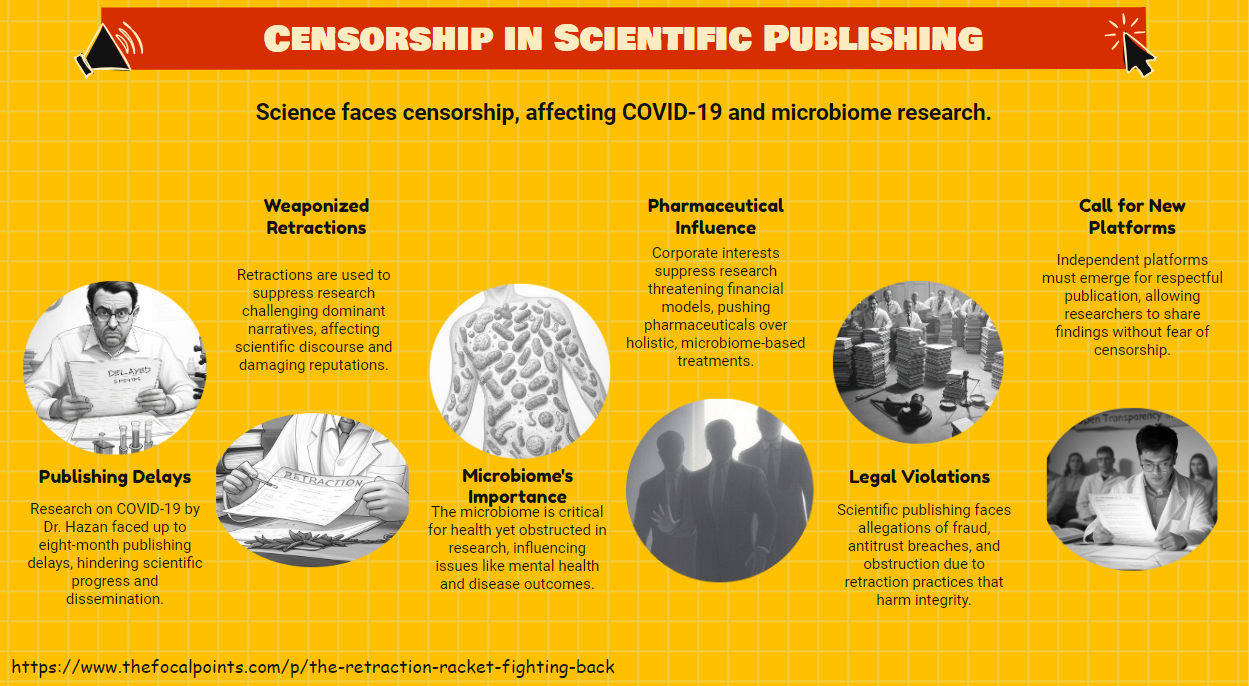Fighting Back Against the Corrupt Journal Cartel
The Retraction Racket: Fighting Back Against the Corrupt Journal Cartel
Dr. Sabine Hazan and epidemiologist Nicolas Hulscher expose how corrupt journals illegally suppress critical research and undermine scientific progress.
-
Dr. Hazan described the immense challenges she faced in publishing crucial COVID-19 research, including a groundbreaking discovery of COVID-19 in stool samples.
-
Her studies on the microbiome, particularly in severe COVID-19 cases, faced unreasonable delays—taking up to eight months to get published.
-
A hypothesis she proposed on ivermectin's role in increasing bifidobacteria was retracted based on nonsensical claims that cited references were later retracted.
-
The person behind one of her retractions was not even a scientist but an investor with clear conflicts of interest.

Nicolas Hulscher and featuring Dr. Sabine Hazan, delve into the challenges faced by researchers whose work challenges mainstream scientific narratives, particularly in medical publishing.
It highlights the case of Dr. Hazan, a gastroenterologist and microbiome expert, whose research on COVID-19 faced significant delays—up to eight months—in publication, allegedly due to journal suppression tactics. The piece argues that retractions and delays are weaponized by a "corrupt journal cartel" to stifle dissenting science, protect corporate interests, and maintain dominant paradigms, ultimately harming scientific progress and public health.
The authors discuss how journals, often influenced by pharmaceutical giants like Pfizer, engage in practices such as antitrust violations, fraud, and obstruction of critical findings. Dr. Hazan’s work, which includes exploring microbiome-based treatments and questioning vaccine-related narratives, is presented as a target of this suppression. The article cites specific examples, like the retraction of a paper on hydroxychloroquine she co-authored, which was pulled without clear justification after initial acceptance, suggesting bias and external pressure.
It calls for reform, advocating for new, transparent platforms like "Open Transparency in Science" to bypass the entrenched publishing system. The piece frames this as a broader fight against a "retraction racket," where financial motives and power dynamics override the pursuit of truth, urging scientists and the public to resist and demand accountability.
Dig In
